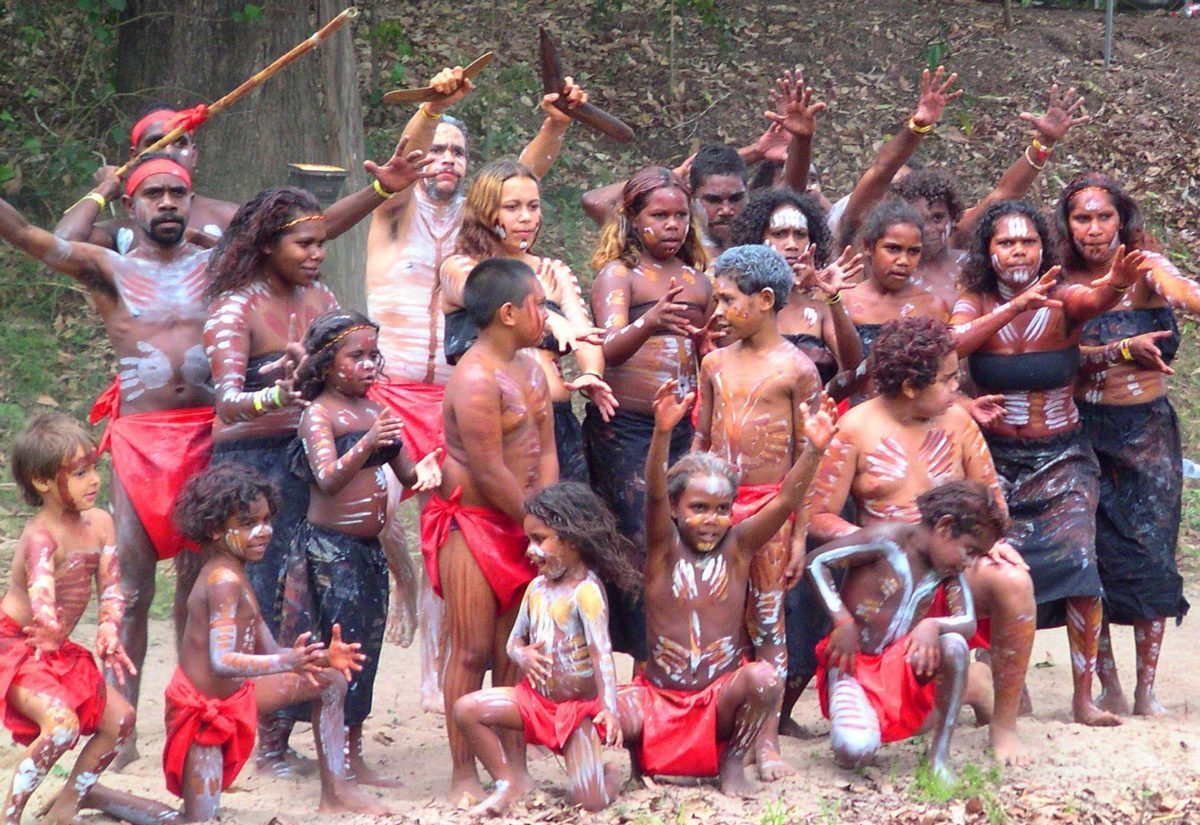In this Mercy Moment we look at another theme emerging from The Wiyi Yani U Thangani (Women’s Voices) Securing Our Rights, Securing Our Future Report 2020: Living and Belonging. Listening to the voices of First Nations women and girls is a critical step in redressing the disadvantage and disempowerment felt across Australia’s indigenous communities.
In Fratelli Tutti, Pope Francis urges us to build a social covenant which enshrines inclusive dialogue and respect for all people as a way of living. He urges us all to build a culture, which respects and acknowledges that different worldviews, cultures and lifestyles coexist in society (n 219), avoids the social violence of despising people who are different (n 218) and condemns intolerance and lack of respect for indigenous popular cultures (n 220).
When we read the words of the First Nations women involved in this study, it is clear that the inclusive culture Pope Francis describes is not a reality in Australia.

Until we blend into the system, we will be alienated but that is our challenge because we don’t want to blend in. We can’t ever blend in. It affects us generationally. In the here and now. I have just seen this complete change in the whole of Indigenous lifestyle as not even being acknowledged. They don’t want to know who we are. We have to be Australian first. I am not Australian first. I am Aboriginal, I am how God made me. Cairns woman (p.81)
As the Report notes, these expressions of disempowerment were commonly heard in the national consultation: Common to the multitude of voices and diversity of stories that I heard across the country was the message that our women, our girls and our communities are excluded from meaningful participation in the decisions that affect our lives. Concerns were expressed that while contemporary Australia prides itself on being a fair, just, democratic and multicultural nation, obstacles to the effective representation and participation of Aboriginal and Torres Strait Islander peoples remain largely unaddressed (p.80).
To build a truly inclusive culture which celebrates and welcomes the voices of all people and redresses the generational exclusion and silencing experienced by Indigenous women requires a number of critical changes:
- the willingness of governments and agencies to listen to the voices of First Nations women regarding what they need to ‘live and ‘belong’ in today’s Australia;
- a commitment to consultation and collaboration with Indigenous peoples in redressing systemic and ongoing disadvantage;
- recognition of the legacy of intergenerational trauma on physical and emotional wellbeing; valuing of Indigenous wisdom, law, spirituality and culture as core elements of Australian identity;
- truth-telling about the treatment of First Nations women and girls past and present;
- accepting that ownership of the land was never ceded and loss of connection to the land has impacted all aspects of Indigenous life, and
- urgent action to address housing, safety, service provision, disability and carer support and educational underachievement in First Nations communities.
It is a huge undertaking, but ‘living and belonging’ for Indigenous women and girls’ begins with recognition that racism, violence, stereotyping, injustice, intolerance and disempowerment exist and continue to impact on their everyday lives.
The Report urges all Australian governments to have the courage to reform a raft of policies, agendas and ways of working with Aboriginal and Torres Strait Islander women and girls to provide communities with the tools, resources and mechanisms to create healthy, safe and thriving environments, regardless of whether we live in a major city, rural town or remote community (p.104).
Pope Francis, in Fratelli Tutti also calls for action and urgent change. He observes,
Great changes are not produced behind desks or in offices. This means that “everyone has a fundamental role to play in a single great creative project: to write a new page of history, a page full of hope, peace and reconciliation” (n 231).
So, let’s answer the call and begin writing…
Reflection
How can your ministry walk in the way of true reconciliation based on truth telling and recognition of past hurts?
References: Wiyi Yani U Thangani Report and Community Guide at wiyiyaniuthangani.humanrights.gov.au and https://www.vatican.va/content/francesco/en/encyclicals.index.html#encyclicals
